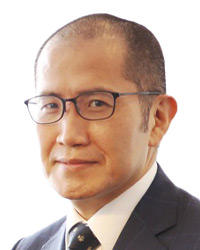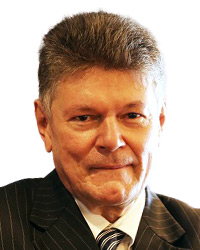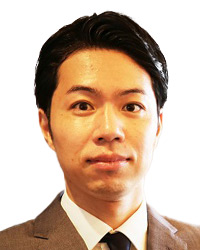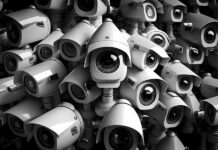Japan is regarded as one of the least corrupt countries in Asia, ranked only behind Singapore and Hong Kong, and 18th globally on Transparency International’s Corruption Perceptions Index of perceived public sector corruption last year. However, the healthcare industry is an exception, with pharmaceutical and medical device companies facing growing scrutiny over “untransparent interactions” with healthcare professionals.
For more than a decade, the authors have helped international pharmaceutical and medical device companies operating in Japan to establish compliance programmes and conduct internal investigations. In this article, they explain from first-hand experience major legal and compliance risks for healthcare companies operating in Japan.
HIGH-PROFILE CASE

Representative Partner
GI&T Law Office in Tokyo
Tel: +81 3 6206 3285
Email: kengo.nishigaki@giandt-law.com
Staar Japan GK is the Japanese subsidiary of the US manufacturer of intraocular lenses for cataract surgery, Staar Surgical. In May 2022, it became known that the company had been paying eye doctors for providing surgical operation videos using their intraocular lenses. The company gave each sales representative a budget of JPY400,000 (USD2,700) to promote their products, paying JPY21.45 million in total to 75 doctors, including ones at public hospitals. One doctor alone received JPY2.2 million for seven videos. Staar Japan paid such compensation when doctors promised to use 50 to 100 lenses.
To compete with large device manufacturers, Staar Japan reportedly had to provide doctors financial benefits, using the ‘post-marketing surveillance’ videos to confirm the safety and efficacy of their healthcare products. Eventually, the company created a video campaign using the video data for internal training.
The Japan Fair Trade Council of the Medical Devices Industry (JFTC-MDI) subsequently issued a strict warning against Staar Japan, stating it violated the fair competition code, which prohibits paying unjustifiable premiums to healthcare professionals or institutions.
The council rarely discloses violators’ names in public, but this time it not only disclosed the name, but also publicised detailed facts of the case on YouTube. Instead of discussing the US Foreign Corrupt Practices Act or other extraterritorial laws, this article will only summarise Japanese anti-bribery laws and industry codes as they affect the healthcare industry.
RELEVANT ANTI-BRIBERY LAWS
The Penal Code of Japan provides for bribery offences in chapter 25 (articles 197 to 198), where both bribers and recipients are punished. Only bribery of public officials is criminalised.

Counsel
GI&T Law Office in Tokyo
Tel: +81 3 6206 3283
Email: andrew.griffin@giandt-law.com
Commercial bribery does not constitute a crime unless there are other offences such as breach of trust, that is when someone acting for another person acts in their own interest or that of a third party, or another person’s interests are harmed (article 247), or when a board member receives a bribe (article 967 of the Companies Act).
Public officials are clearly defined in Japanese laws. Some laws provide that persons who work for state-owned entities or conduct public duties shall be called “deemed public officials”, which usually includes healthcare professionals who work for public hospitals or universities.
Under the Penal Code, if anything of value is offered, given or promised to a public official in connection with the public official’s duties, a quid-pro-quo for the official’s action or inaction is not required.
However, if the bribe was given to a third party, rather than a public official, the prosecutor must establish a quid-pro-quo. For example, in 2021, two employees of Ono Pharmaceutical were arrested and convicted for providing a donation of JPY2 million to Mie University Hospital (a national university hospital) in exchange for increasing prescriptions of the company’s drug, Onoact. Since academic donations, called shogakukifu, are often made to healthcare professionals in university hospitals, this case caused a chilling effect in the industry.
Article 18 of the Unfair Competition Prevention Act criminalises foreign bribery with extraterritorial effect. In 1997, Japan signed the Organisation for Economic Co-operation and Development (OECD) Convention on Combating Bribery of Foreign Public Officials in International Business Transactions. However, the country has not actively enforced the law. There were only about 10 cases in 20 years, and the largest fine imposed was JPY90 million on Japan Transportation Consultants for bribery in Vietnam, Indonesia and Uzbekistan in 2015.
The OECD has urged the Ministry of Economy, Trade and Industry of Japan to amend the law and increase the stipulated penalties – the current maximum is JPY300 million, or just over USD2 million – extend the statutory period (currently five years), and expand the scope of exterritorial application (currently foreign nationals or companies are not subject to the law).
However, expanding the scope to foreign nationals or companies would be difficult to achieve, since an amendment to the extraterritorial application of the Penal Code under the Ministry of Justice is required.

Associate
GI&T Law Office in Tokyo
Tel: +81 3 6206 3927
Email: yuji.yamamoto@giandt-law.com
The National Public Service Ethics Law and Ethics Codes is one of the most detailed ethics codes in the world, restricting government officials from receiving entertainment and gifts. But these rules apply only to national governmental officials (except parliament members and ministers), not to municipal officers or “deemed public officials”. However, municipal governments and public hospitals often establish ethics codes similar to the above-mentioned ethics law and codes.
Entertaining national governmental officials is also prohibited under this regulation. If persons have meals with them, the costs must be split. Further, if the cost exceeds JPY10,000 each, the official must report to ethics officers in advance.
However, officials can participate in buffets with 20 persons or more. Lunches up to JPY3,000 may be provided during normal meal times. Thus, healthcare companies may invite healthcare professionals to buffets at academic congresses, and provide lunch during product detailing meetings. But national governmental officers may not play golf or travel with such persons even if they split the costs. Interestingly, tennis, baseball, the Japanese board game “Go” and chess are allowed.
INDUSTRY CODES
The JFTC-MDI and Fair Trade Council of the Ethical Pharmaceutical Drugs Marketing Industry issue fair competition codes (FCCs) to regulate interactions with healthcare professionals. They are promulgated under the Act against Unjustifiable Premiums and Misleading Representations, a law to regulate unfair premiums. The FCC is an industry code prohibiting unjustifiable premiums to healthcare professionals and institutions, including meals, gifts, donations, direct sponsorship, post-marketing surveillance, provision of non-financial support, and manufacturer’s support in surgery rooms.
The JFTC-MDI has issued a 300-page explanatory commentary. But compliance officers will have to employ their deep understanding of the industry to interpret it. Some noteworthy regulations under the FCC include:
Meal allowances. Manufacturers may provide meals for commercial discussion purposes up to JPY10,000 per person. The pharmaceutical industry council’s FCC sets the limit at JPY5,000 per person and no pre-arranged meal is allowed, meaning that a sales representative must first start discussions with a healthcare professional before inviting one to a restaurant. Medical devices representatives often take healthcare professionals for meals, although pharmaceutical representatives rarely do.
Under both FCCs, healthcare professionals may have a meal within JPY20,000 for special occasions such as showing appreciation for presentations. But healthcare professionals cannot go for drinks or meals anywhere else after the first party, or nijikai, which means the second party that follows after the main party is over. At doctor detailing sessions, JPY3,000 meals are acceptable, usually a simple bento (Japanese-style packed meal).
Shogakukifu donation. Shogakukifu is a donation to university hospitals or academic congresses for research. Unlike charity, it is to promote research conducted by healthcare professionals. The FCC does not require a specific research topic; a general purpose such as cancer research is acceptable. But shogakukifu is often misused by manufacturers to promote sales at university hospitals, with healthcare professionals often requiring manufacturers to provide shogakukifu in return for including their products in hospital prescription lists.
For example, in another publicised case, a professor who was director of the clinical anesthesia department at Mie University Hospital asked Ono Pharmaceutical for shogakukifu to increase prescriptions.
Since then, some healthcare manufacturers have either abolished shogakukifu or established an independent donation committee. However, doctor awareness is still unchanged, university hospitals still rely on shogakukifu for research budgets, and manufacturers struggle to mitigate shogakukifu risks.
OTHER MAJOR CODES
The Japan Pharmaceutical Manufacturers Association has also issued a code of practice and the Japan Federation of Medical Devices Associations has issued a promotional code for the medical device industry to promote ethical conduct.
Both of these industry organisations have transparency guidelines, requiring manufacturers to annually disclose any donations, research grants, speaker arrangements or meals provided to healthcare professionals and medical institutions.
Most recently, the American Medical Devices and Diagnostics Manufacturers’ Association, representing major US medical device companies operating in Japan, issued guidelines for ethical relationships with business partners, providing guidance for monitoring relationships with business partners, including distributors and agents.

GI&T LAW OFFICE
8/F Shin-Yurakucho Building
1-12-1 Yurakucho, Chiyoda-ku
Tokyo – 100-0006, Japan
Tel: +81 3 6206 3283































